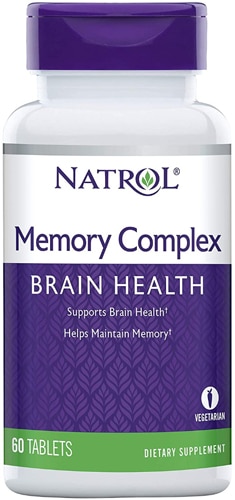[vc_row][vc_column][vc_column_text]No matter your age, moments of forgetfulness are as common as times of clarity. But as you enter midlife, however you might define this era, you may question: Is my absent-mindedness and brain fog indicative of
dementia—or even Alzheimer’s disease?
It’s a solid—and valid—question.

Roughly
one in 10 older Americans has dementia. Meanwhile, Alzheimer’s, a ravaging, even heartbreaking disease, affects 6.7 million U.S. residents aged 65 and older. Roughly 10% of those 75 and older will be diagnosed with it. And not only do dementia and Alzheimer’s impact the individual suffering, but also their family members, friends, colleagues and community.
To pause and ponder if your lapses in memory are symptomatic of a neurodegenerative condition, then, is to take the first step towards protecting your brain—and adopting the necessary measures to prevent further decline. Keep reading as we explore this oh-so-important topic.
What is dementia? And what is Alzheimer’s?
Dementia and Alzheimer’s have been part of the vernacular for well over a hundred years. And while they may
seem to resemble each other, there’s a distinction between the two.
Why is understanding the difference between them vital?
Because it can determine your medications, remedies, and treatment in general.
- Dementia is an umbrella term for neurodegenerative issues, while
- Alzheimer’s fits under the umbrella of “dementia”
Further, unlike Alzheimer’s, which is a disease, dementia is a
syndrome, reports Ron Peterson, M.D., the director of the Mayo Clinic Alzheimer’s Disease Research Center.
Alzheimer’s is the most common type of dementia, and yet there are categories within this as well. These include:
- Vascular dementia, which is triggered by diminished blood flow to the brain
- Lewy body dementia, which is caused by an accumulation ofproteins in the brain
- Frontotemporal dementia, which is instigated by nerve cell loss in the brain
In simplest terms, dementia can be identified as a decrease in mental function that moves beyond the somewhat-benign forgetfulness that often goes hand-in-hand with aging, while Alzheimer’s is a progressive brain disease that devastates memory and the ability to think, make decisions and, ultimately, function.
What is general forgetfulness—and what are the signs of dementia?
Struggling to recall your grand niece’s husband’s name, having trouble recalling where you put a document in your office, forgetting to mail a letter—all of this is natural, particularly if you’re under a great deal of stress:
Research demonstrates that stress impairs your capacity to form short-term memories while also shattering your focus.
Dementia, however, extends above “Oops, that was silly of me!” moments. The primary symptoms to be aware of include:
- Disorganized thoughts
- Disorientation
- Changes in mood and personality
- Language impairment, such as the inability to remember certain words that are part of your regular speech
Other signs are less noticeable. If you find yourself having some difficulty performing quotidian tasks—like driving, paying your bills, figuring how much cash to hand over when making a purchase and remembering how to properly make your bed—you may be experiencing the early stages of dementia, or what neurologists characterize as “mild cognitive impairment” (MCI).
…and what are the signs of Alzheimer’s?
The symptoms of Alzheimer’s, as you might imagine, are more severe than MCI.
Usually, it is one’s family members and closest friends who realize that something may be, well…
off about a loved one.
The leading signs of the beginning of Alzheimer’s might be seen and felt as trouble with solving problems and making plans; a sense of bafflement with where you are and the time of day; memory gaps that interrupt your normal life, and sudden, inexplicable difficulty with recalling words, or details from an event that recently occurred.
Again, the disease is progressive—meaning, it grows worse over time. As Alzheimer’s goes on—alas, it is irreversible—you (or your loved one) may also experience:
- Weight loss and an increasing disinterest in eating
- An inaptitude to communicate
- An inability to recall family and friends’ names and faces
- Seizures
- Changes in sleeping patterns, and the desire to sleep more
- Challenges in conducting daily tasks, such as eating, swallowing, dressing and toileting
Here’s the promising news: There are a number of ways you may be able to shield your brain from decline—and from a diagnosis of dementia or Alzheimer’s.
Dementia prevention: How to protect your brain
You likely already know that practicing a healthy lifestyle is one of the keys to longevity—including your
mind’s longevity. Eating a wholesome diet rich in fruits, vegetables, lean proteins and herbs, exercising frequently, sleeping soundly, hydrating wisely, tackling stress with calming practices such as yoga,
spending time in nature and seeing friends, refraining from excessive alcohol use, quitting smoking, and staying at a healthy weight—all are surefire ways to nourish your brain, body and spirit.
If you’re concerned about your risks for dementia, because family members had it as they got on in years, you can consider getting a gene test:
Alzheimer’s isn’t necessarily a
genetic disease, in that lifestyle and environment also play a role. And yet,
data reveals that those with a specific gene, called apolipoprotein E (APOE4), are the most at risk part of the population:
- 25% of people have one copy of APOE4
- 2 to 3% possess two copies of APOE4
One mutation of this gene increases your risk of Alzheimer’s by 30%, but two mutations of this gene increases your risk by a whopping 50%.
It’s important to note that not everyone who carries this gene will definitely develop dementia. That said, a simple blood or saliva test can help you feel more in control of your destiny. You can also change your lifestyle so that you plant yourself firmly in the 50-70% group that does not get dementia regardless of their genetic blueprint.
Aim to decrease your uric acid levels
Dr. David Perlmutter’s New York Times bestselling
Drop Acid: The Surprising New Science of Uric Acid—The Key to Losing Weight, Controlling Blood Sugar, and Achieving Extraordinary Health uncovers the correlation between high level of
uric acid (an acid that’s organically generated to break down a chemical in some foodsknown as “purine”) and neurological disorders, a theory that has been buttressed by
a great deal of research. Ideally, according to Dr. Perlmutter, your levels should be less than 5.5 mg to protect your brain. It’s important to note that if you have gout, which is caused byelevated uric acid levels, you may be at an even
higher risk of developing dementia. The good news is that there is plenty you can do to lower uric acid levels in your body. The most accessible action you can take is to change your diet and limit foods that are high in purines, such as:
- Certain types of fish, such as anchovies, sardines, mackerel and tuna
- Organ meats, like liver
- Red meat
- Dried peas and beans
- Alcohol, particularly beer
At the same time,
you can decrease your uric acid levels through foods high in quercetin, such as apples, cherries, kale, berries, black tea and grapes. The same goes for foods high in vitamin C including many fruits and veggies.
And while you’re at it? Dr. Perlmutter recommends in his book
, Grain Brain, to skip or at least limit foods that contain gluten: the protein in wheat, barley and rye. These grains may increase systemic inflammation and heighten your chance of cognitive decline.
Assess your hormones
If you’re female and have entered perimenopause or gone
through menopause, consider getting your hormones evaluated: A growing body of research reveals that low levels of estrogen may up your vulnerability to dementia, while the use of estradiol—a form of hormone therapy—
may decrease the deterioration of critical parts of the brain in those who are at a high risk for dementia.
†
Embrace sauna therapy
Dr. Peter Attia mentions in his book,
Outlive, the connection between the use of sauna therapy and a reduced risk of dementia. Data confirms this, with some research suggesting that using a sauna four to seven times per week may decrease your susceptibility to neurological disorders like Alzheimer’s by a stunning 65%.
†
A good rule of thumb? Select a temperature between 175 and 195 degrees Fahrenheit, with 10 to 20% humidity, and sweat it out for 30 minutes at a time. Be sure to jump into a cold plunge or shower for even greater health benefits for your whole body. A word of caution, though: Ensure you receive your healthcare professional’s approval before waltzing into a sauna, or adopting any of the suggestions listed here.
Is it forgetfulness—or dementia?
You know your mind best. If you find that you’re getting more and more absentminded and aren’t under a tremendous amount of stress (or don’t have an underlying medical condition separate from dementia), you may want to seek help from your physician. They have the knowledge, tests and tools to help you keep the toolbox in your brain clean and sharp—so that you can go on living your best, most coherent and beautiful life.
†These statements have not been approved by the Food and Drug Administration. These products are not intended to diagnose, treat, cure or prevent disease.[/vc_column_text][/vc_column][/vc_row][vc_row][vc_column][vc_text_separator title="Featured Products" border_width="2"][vc_row_inner equal_height="yes" content_placement="middle" gap="35"][vc_column_inner width="1/3"][vc_single_image image="167953" img_size="full" alignment="center" onclick="custom_link" img_link_target="_blank" css=".vc_custom_1690147458343{padding-right: 7% !important;padding-left: 7% !important;}" link="https://www.vitacost.com/vitacost-synergy-cognitive-support-60-capsules"][/vc_column_inner][vc_column_inner width="1/3"][vc_single_image image="167952" img_size="full" alignment="center" onclick="custom_link" img_link_target="_blank" css=".vc_custom_1690147477526{padding-right: 7% !important;padding-left: 7% !important;}" link="https://www.vitacost.com/neuriva-plus-capsules-natural-brain-performance-supplement-vitamin-b6-b12"][/vc_column_inner][vc_column_inner width="1/3"][vc_single_image image="167951" img_size="full" alignment="center" onclick="custom_link" img_link_target="_blank" css=".vc_custom_1690147493972{padding-right: 7% !important;padding-left: 7% !important;}" link="https://www.vitacost.com/life-extension-brain-fog-relief"][/vc_column_inner][/vc_row_inner][/vc_column][/vc_row]
 Roughly one in 10 older Americans has dementia. Meanwhile, Alzheimer’s, a ravaging, even heartbreaking disease, affects 6.7 million U.S. residents aged 65 and older. Roughly 10% of those 75 and older will be diagnosed with it. And not only do dementia and Alzheimer’s impact the individual suffering, but also their family members, friends, colleagues and community.
To pause and ponder if your lapses in memory are symptomatic of a neurodegenerative condition, then, is to take the first step towards protecting your brain—and adopting the necessary measures to prevent further decline. Keep reading as we explore this oh-so-important topic.
Roughly one in 10 older Americans has dementia. Meanwhile, Alzheimer’s, a ravaging, even heartbreaking disease, affects 6.7 million U.S. residents aged 65 and older. Roughly 10% of those 75 and older will be diagnosed with it. And not only do dementia and Alzheimer’s impact the individual suffering, but also their family members, friends, colleagues and community.
To pause and ponder if your lapses in memory are symptomatic of a neurodegenerative condition, then, is to take the first step towards protecting your brain—and adopting the necessary measures to prevent further decline. Keep reading as we explore this oh-so-important topic.



